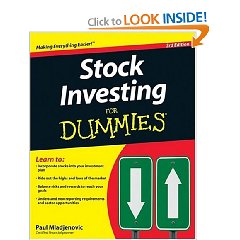Market Capitalization - Outstanding Shares- Floating Shares - and Issued Shares

Stocks and Shares
What is the difference between stocks and shares? There is a difference but it’s not much and it’s to do with syntax. The two words, stocks and shares, are normally used interchangeably. The two refers to certificates that signify ownership of a certain ratio in a company. These certificates are called share certificates or stock certificates. The word ‘stock’ is generally used to refer to ownership certificates of any company whilst the word ‘share’ is used to refer to ownership certificate of a particular company. For example, when you say you have ‘stocks’ it is understood to mean your overall ownership in several companies but when you say you have ‘shares’ it is understood to mean your ownership in one company. The bottom line is – stocks and shares are financially and legally the same thing.
Issued Shares - Outstanding Shares
If you want to form a limited company, the law requires the number of shares authorized and can be issued be stated. Now, the question is: are these shares you state outstanding shares or floating shares?The numbers of shares sold or awarded to shareholders by your corporation or limited company are called issued shares. These issued shares are also called outstanding shares. Issued shares or outstanding shares can be issued to shareholders but be pegged on some conditions. For example, a company may issue 5% of its shares to the employees but with a condition that the shares held by employees can not be sold for the next 12 years. So, not all shares issued to the public are available for trading.
Floating Shares
The number of issued shares to shareholders and are available for trading are called floating shares or just float.
Company’s Treasury
Perhaps this can be understood better with an example. A limited company or corporation XYZ has been formed and authorized with 200,000,000 shares. These shares are kept in a safe place which is called company’s treasury. At this time when no shares have been sold out, the number of outstanding shares is zero and the number of floating shares is zero.
Example
Three years latter, company XYZ, decides to issue an IPO – initial public offering. At the same time the Directors feels that as an incentive to their employees, the employees will have to be given preference in sharing a piece of the IPO cake. The company therefore decides to sell 25% of the shares to the public and 5% of the shares to its employees. The shares sold to the employees have a condition that they can not sell them until after one year. Out of the total 200,000,000 shares, the public will have 50,000,000 (25%) shares; the employees will have 10,000,000 shares (5%). The employees shares are locked from trading by a restriction and these shares are commonly called a lockup. The number of shares remaining in the company’s treasury after the IPO is 140,000,000. Shares issued which are the outstanding shares are 60,000,000. Shares floating which is the float are 50,000,000.
Stock Brokers
Shares trading in the stock market for this XYZ Company are 50,000,000 which are the shares held by the public. Today, the public have each to open an account with a stockbroker so that in essence it’s the stock broker who is in possession of your shares. What you have is an account showing you own a certain number of shares in XYZ Company. In as much as you may want to hold your stocks without selling them, in the real sense your shares are very much in the market and fully trading.
Shorting the Stock
Shares trading in the stock market for this XYZ Company are 50,000,000 which are the shares held by the public. Today, the public have each to open an account with a stockbroker so that in essence it’s the stock broker who is in possession of your shares. What you have is an account showing you own a certain number of shares in XYZ Company. In as much as you may want to hold your stocks without selling them, in the real sense your shares are very much in the market and fully trading.
Diluting the Market
If XYZ Company feels its shares are not doing well in the stock market, the company can buy a certain percentage of shares from the secondary market and return them back to treasury. By doing that they reduce the supply and as such the price of its shares may go up in the secondary market. Also, when the restriction on shares held by XYZ employees expires after one year, the shares will become available for trading in the secondary market thus increasing the supply. With increased supply, the prices of XYZ stocks may go lower. This is called diluting the market. There is another way a company can issue additional shares. The company may as well sell an additional percentage of it shares in treasury by a secondary offering to the general public, or perhaps even to politically correct individuals. This will also dilute the secondary market.
Top Executives and Stock Options
XYZ Company may also decide to offer its top executives thousands of stock options as an incentive to work hard so that the value of the company can increase. When the company’s value increases, the price of the company’s stock increases, as well as the price of options issued to the executives. When the options expire, the executives exercise their options. By exercising their options, they get stocks which they sell in the secondary market.
Common Shares
Again, shares outstanding are the common shares that have been authorized, issued, and purchased by the public. These public shareholders have the right to vote in the company and in essence they represent ownership of the company.
Market Capitalization
Market capitalization is defined as a measurement of the size of a business enterprise value. Market capitalization is equal to the share price in secondary market multiplied by the number of shares outstanding for company XYZ. Capitalization is the therefore the company’s worthiness in public opinion. Capitalization can not give the actual value of a company but rather a market estimate of a company's value, based on public perceived future prospects, economic and monetary conditions - and the general public is always wrong.
Secret Weapons
These are some of the things one need to know before successfully trading in the stock market. As you can see, the top executives have a few secret weapons that they can manipulate to get things working their ways - but its not always easy and it can backfire on the executives and by extension to the company as well as to all shareholders.
For one to beat these knowledgeable executives in their own game, one needs to equip him/herself with sufficient knowledge about the stock market and stocks trading. Get yourself one or two books from the trusted Amazon store below. You can do this online from the listing of books provided.

Buy Books Online Here About the Stock Market and Stocks Trading Strategies
If you have liked this article, and you would want this page to keep up and improved, you can help by purchasing some great items from Amazon by following Amazon links and widgets on this page. A free way to help would be to link back to this webpage from your web page, blog, or discussion forums.
The Author’s page is designed to help beginners and average readers make some money as an extra income to supplement what they may be earning elsewhere - details of which you can find in My Page, if you will.









